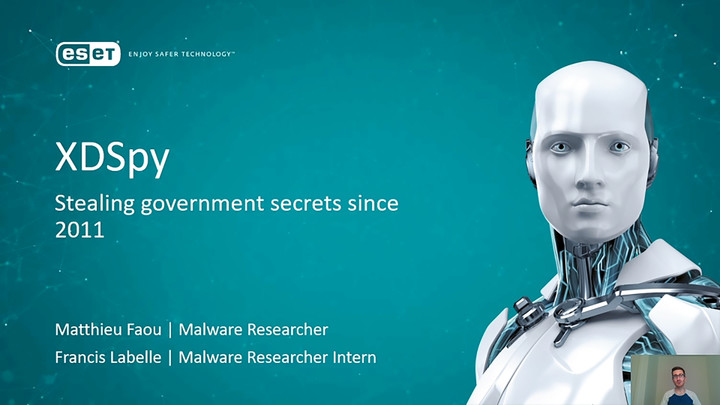XDSpy: stealing government secrets since 2011
Matthieu Faou (ESET) & Francis Labelle (ESET)
18:15 UTC on
Day 3
FRIDAY 02 OCTOBER
Matthieu Faou
ESET
Matthieu Faou is a malware researcher at ESET where he specializes in researching targeted attacks. His main duties include threat hunting and reverse engineering of APTs. He finished his Master’s degree in computer science at École Polytechnique de Montréal and at École des Mines de Nancy in 2016. In the past, he has spoken at multiple conferences including BlueHat, RECON, CYBERWARCON, Virus Bulletin and Botconf.
Francis Labelle
ESET
A student at the École de Technologie Supérieure (E. T. S.), Francis has discovered an interest for information security at the start of his undergraduate studies. He has worked as an intern for ESET, GoSecure and Desjardins' ETTIC team. He has also given workshops for Montrehack and DCIÉTS, and has been a finalist in popular CTF events like Hack in Paris, CSAW and DefCamp.





